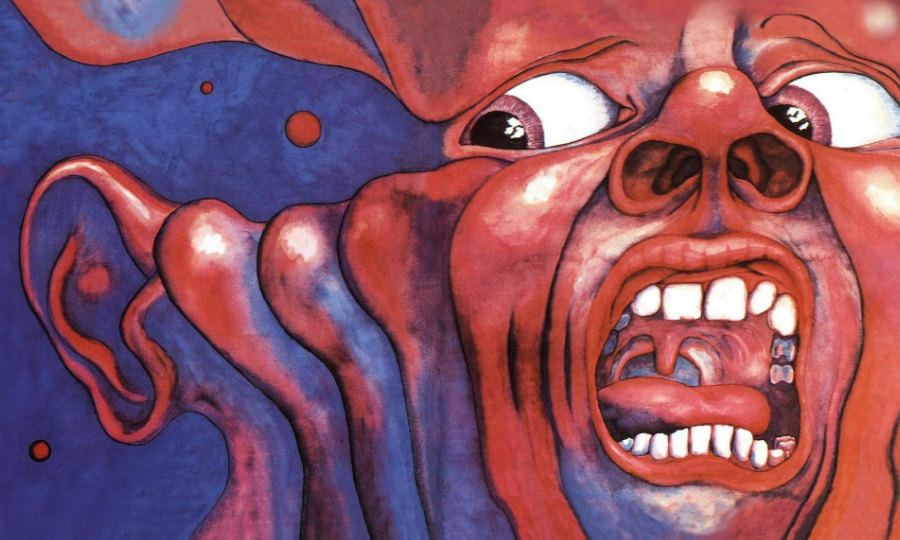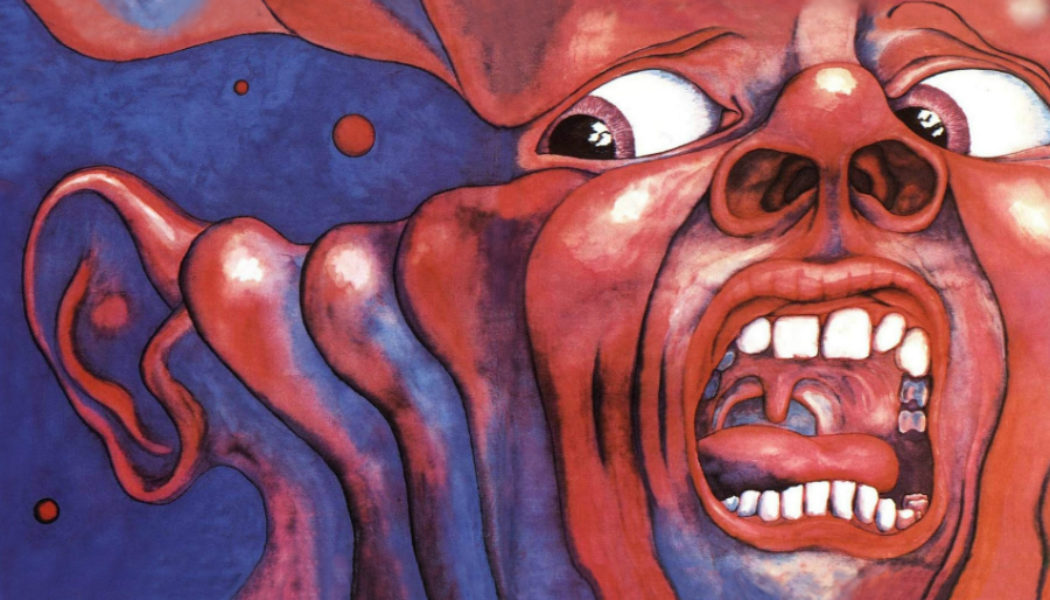
For rock fans in 1969, there was no shortage of fantastic albums, nor was there a lack of fantastically out-there albums. The year was chock-full of innovative projects that would go on to splinter rock music into a sprawling family tree of microgenres: Abbey Road, The Velvet Underground, Everybody Knows This Is Nowhere, Hot Rats, Led Zeppelin, The Band… the list goes on. But while each of these records are wonderful and, in their own ways, wonderfully strange, perhaps only one can lay claim to effectively inventing a genre — King Crimson and their perfect, revolutionary, prog-rock-defining debut, In the Court of the Crimson King.
From the moment of its conception, King Crimson was out for shock and awe. Composed of guitarist Robert Fripp, drummer Michael Giles, bassist Greg Lake, multi-instrumentalist Ian McDonald, and lyricist/idea-man Peter Sinfield, the band established itself as a formidable, ferocious, and unpredictable live act within mere months of forming. Nabbing opening gigs for the likes of The Rolling Stones and boasting notable fans such as Jimi Hendrix (someone who might know a thing or two about guitar music), it became blindingly clear that the band had found something different from the art-rock that came before them.
And yet, when it came time to put their tunes to tape, the group initially struggled to translate the spirit of their stage show to a studio environment. Working with famed Moody Blues producer Tony Clarke, the bullish men of King Crimson knew what they wanted out of their art (that being work that could irrevocably change the landscape of popular music), and they weren’t about to settle for anything less. Unfortunately, that’s exactly what they felt they were getting — less — and the blame fell on Clarke.
“You’ve got to remember that all the people in King Crimson were very strong personalities,” Lake later reflected. “They were very intelligent, very good musicians and all opinionated – not in a nasty way, but everyone was passionate about what they were doing. All very dedicated and all of us out to change the world in one way or another.
“The fact of the matter is that when it came to music making and the music we were making, really Tony didn’t know enough about it. We felt that we could make a better job of producing the record, because we knew more about it than he did.”
So, in a move that could be considered either bravely confident or exceedingly arrogant, King Crimson walked away from their established producer and the industry cred that would have come with his name in the liner notes. Instead, they opted to produce the record themselves, with one of the band’s managers even remortgaging his house to make it happen.









